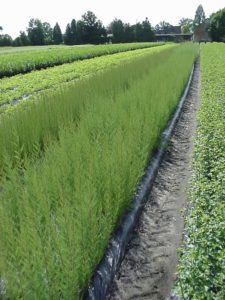Community groups are taking action against global warming by collecting household food scraps and other organic waste for composting.
Instead of dumping organic waste into landfills where it creates greenhouse gases, they are helping to restore our climate by turning “waste” into a regenerative resource to rejuvenate our soils through compost. To collect the waste, many people use compostable bags such as BioBag.
Food composting curbside collection programs served only 3.8 million of US households in 2015 according to US EPA, or 3% of 124.6 million US households. By 2017, less than 2% of US communities had municipally-backed food waste collection services according to Biocycle, a waste industry magazine. Yet, food loss and waste accounted for 8.2% of greenhouse gas emissions, compared to 10% from road transport in a 2012 report by the World Resources Institute.
Bottom line: household organic waste in landfills is a major contributor to global warming. Instead grassroots organizations are turning the waste into compost to reduce methane emissions from landfills and enrich the soil according to the US EPA. Here are a few examples:
- Bootstrap Compost’s cyclists and drivers divert thousands of pounds of organic waste from landfills in the Greater Boston area weekly, and they have composted 3,640,737 lbs. of organic waste so far.
- Common Ground/Reclaimed Organics is a compost collection service for lower Manhattan residents & businesses, bringing food scraps by bike to local community gardens for composting. They process 1,500 lbs a month.
- Earth Matter NY is a non-profit organization advancing composting in-and-around New York City. They compost 28,000 lbs. of food scraps monthly. Their Compost Learning Center on Governor’s Island teaches composting helped with funding by the NYC Department of Sanitation and smaller sponsors like BioBag, the compostable bag manufacturer. Earth Matter and BioBag made a series of videos showing how people use compostable bags, as an alternative to plastic.
- Compost Crusader in Milwaukee paved the way for municipal action. They got a city contract to provide collection services for an Organics Collection Pilot Study which diverted 358,000 pounds of organic waste from the landfill in the first year.
The Institute for Local Self-Reliance (ILSR) provides an interactive Composting for Community Map of local composting services.
“We applaud the ‘bucket brigades’ and educators like Earth Matter,” says Jennifer Pope, VP Marketing at BioBag. “It’s a win-win. More people help the environment, learn the value of composting and are educated in how our compostable bags can be used to collect organic waste and compost more.”
Both Earth Matter and BioBag support the increasingly popular National Cultivating Community Composting Forum, happening on May 11-14, 2019 in New York City. The forum will share best practices and build support for the composting movement.
BioBag is the world’s largest manufacturer of compostable bags and films, and they’re made in the USA. Their liners have the highest renewable content in the industry. Unlike many other brands, BioBags are 3rd-party certified home compostable and Non-GMO project verified.
All images courtesy of Biobags.


